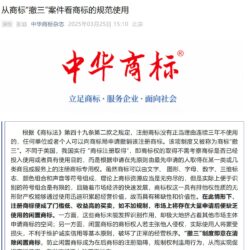Deceptive and other improper means is one of the absolute grounds under China Trademark Law in refusals or invalidations of trademarks. It is effective for fighting against the squatting of a given entity’s numerous trademarks by using Article 44.1 on dissimilar goods or services when the trademarks involved are of certain fame but do not yet qualify as well-known marks in China.
Case Facts
Invalidation Stage
The relative clause
The difficulty in applying the relative clauses is that, though some news reports of Kakao Pay business cooperation with Alipay, it is difficult to determine the mark Kakao Pay has been widely known to the relevant public in China. As a result, Kakao’s claim that ZHANG’S registration damages the rights and interests of its prior right or well-known trademark lacks factual basis. It does not belong to the situation stipulated in Article 32 or 13 of the Trademark Law.
The absolute clause
In invalidation cases, the absolute clause Article 10.1.7 can be established merely when the use of the disputed trademark may cause misleading deception to the public concerning the source of goods. Article 10.1.7 is also too farfetched in this case.
Therefore the invalidation failed in the prosecution stage and CNIPA did not support any of the above articles.
First Instance Judgement
According to the judgement:
- The registrant of the disputed trademark applied for dozens of trademarks similar to Amazon and Fragment Design and other entities’ famous trademarks, in many classes.
- The applicant ZHANG did not give reasonable explanations on the origins of design of the above trademarks, and the evidence submitted failed to prove that it has used or has a true intention to use the disputed trademark.
- The applications for the registration of these trademarks by ZHANG obviously exceeded the normal needs of production and operation, disturbed the order of trademark registration administration, improperly occupied public resources, and damaged public interests.
- The application of the disputed trademark has constituted the situation of “obtaining registration by other improper means” as stipulated in Article 44.1 of the Chinese Trademark Law.
Court’s Application of 44.1
With the application of Article 44.1, this case has effectively cracked down on the squatting of others’ trademarks in certain numbers and protected the legitimate rights and interests of the real owner.
The application of Article 44.1 in this case is mainly based on the following facts:
- The number of trademarks filed by the registrant is relatively large, including several famous marks of different entities.
- The trademarks squatted by the registrant have a high level of fame.
- The registrant displayed obvious bad faith in its advertising activities where it attempted to take advantage of others’ trademark reputation to further its own interests.
NOTE: Courts are more open to the volume and number of bad faith filings as long as these marks are imitated famous marks of different entities, or even imitated one of several marks of one entity.
The Trend in Similar Cases
In terms of combating bad faith registrations, because the Trademark Law stipulates that the time limit for claiming prior rights is five years, the prior right holder in many cases loses the opportunity to win the case because the trademark in dispute has been registered for more than five years even though bad faith is obvious. In some previous cases, upon consideration of public/social influence, CNIPA and courts have used “other improper measures” (Article 44.1) as absolute ground to protect some names/marks with high reputation in China when they have been preemptively registered in bad faith for more than five years.



